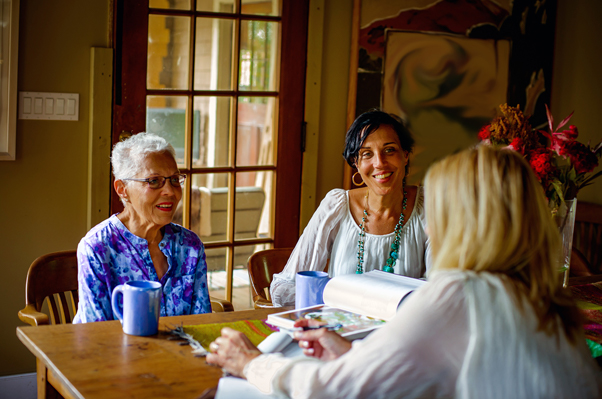
What is Sundowning, and How Can Memory Care Help?
As a Senior Living Advisor and dementia expert located on Long Island (Mike McClernon, 516-254-9481), many people tell me about new and concerning behavioral changes an elderly loved one is exhibiting after an Alzheimer’s disease or dementia diagnosis. Some of these new behaviors include having trouble sleeping or acting agitated or upset starting in the late afternoon or at dusk and often lasting long into the night.
These symptoms are usually a sign of a condition known as sundowning. Although medical science doesn’t fully understand why these disturbances happen to people with Alzheimer’s or dementia, experts believe that these changes result from the impact that the diseases have on the brain.
Sundowning typically peaks in the middle stages of Alzheimer’s disease and diminishes as the condition progresses. It can be challenging for family caregivers to manage their loved ones experiencing symptoms of sundowning. That’s why many Long Island families turn to Memory Care communities for support as the person continues on their dementia journey.
Signs of sundowning in people with Alzheimer’s disease or dementia
People who are sundowning may exhibit one or more of the below behaviors around dusk and continue through the dark hours:
- Confusion, agitation, or anxiousness
- Pacing, wandering, or otherwise acting restless
- Seeing or hearing things that are not there
- Suspicion of people or surroundings
- Questioning reality and believing things that are not true
- Changing their sleeping patterns
- Fidgeting during the night
Sundowning can also result in behavioral problems during the day due to the disruption in their usual sleeping-waking cycle.
What can trigger sundowning behaviors?
Several different factors can cause negative behavioral expressions in the evenings and sleep disturbances overnight, including:
- A lack of routine or boredom during the day
- Daytime napping, especially too close to the evening
- Over-exhaustion at the end of the day
- Anxiety or fear caused by shadows in a low-light environment
- Confusion between daytime and nighttime caused by a disturbance to their internal body clock
- A reduced need for sleep, which is common in older adults
- Disorientation, possibly from being unable to tell the difference between dreams and reality
People who are sundowning are experiencing something that is beyond their control. It’s crucial to respond in a supportive way to prevent further upset and keep your loved one, yourself, and others safe.
Fortunately, Memory Care communities are designed for people with cognitive conditions such as Alzheimer’s disease or dementia and are staffed by trained professionals qualified to provide empathetic, patient, and compassionate support to residents.
How Memory Care helps residents who are sundowning
When someone with Alzheimer’s disease or dementia moves into Memory Care, they’re part of a community created for mental stimulation, progressive activities, and personal health and safety.
Memory Care staff are specially trained to create a comfortable environment for residents so they can have the best day possible, even if they’re showing signs of sundowning.
Some of the strategies Memory Care staff use to prevent sundowning include:
- Opportunities to enjoy the sunshine to help reset their internal clock
- Well-lit facilities and residences that reduce anxiety and help residents identify familiar people and objects
- Include physical activities and exercise into their daily routine, but not too close to bedtime
- Minimizing daytime napping, especially close to the end of the day
- Ensuring their daily routines are consistent, enjoyable, and as stress-free as possible
- Keeping evening activities light, such as listening to soothing music, reading, or having a pleasant conversation
- Ensuring that curtains or blinds are closed at nightfall to reduce shadows that may cause confusion
- Avoiding access to coffee, cola, or other caffeinated drinks late in the day
- Discouraging the use of television, computers, or using other brightly-lit screens during periods of nighttime wakefulness as they can be overstimulating
Memory Care staff also understand the importance of discovering what triggers sundowning in your loved one. Once the cause is revealed, they will take proactive action to address the trigger before the situation can escalate.
It’s important to remember that placing a loved one into Memory Care isn’t a reflection of you as a caregiver. These communities were created to allow families to focus more on enjoying visits than on acting as a care provider.
Memory Care placement is an act of love, helping your relatives thrive in a place created just for them.
No-cost help finding quality Memory Care communities on Long Island
Searching for a Memory Care community on your own or for the first time can be a daunting, confusing process. With so many options available, ensuring you make the best choice for your loved one requires painstaking research, asking the right questions, and avoiding pitfalls.
That is why families turn to Mike McClernon of Assisted Living Locators of Long Island. Mike has collaborated with hundreds of families just like yours to help find the most appropriate Memory Care community for their older loved ones. Mike’s team will take the time to learn all about your needs and requirements, accompany you on community tours, and ensure that you have all the information you need to make the most informed choice possible.
Contact Mike today at 516-254-9481 or mikem@assistedlivinglocators.com to explore Senior Living Community options for the older person in your life. His phone is always on!
